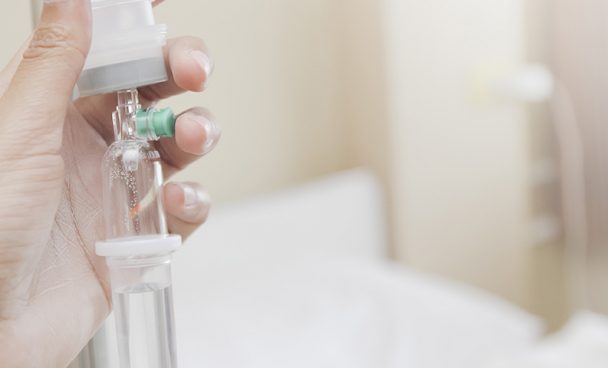The Oncoclínicas Group has outpatient clinics that offer clinical and medication-based treatments against cancer (chemotherapy, immunotherapy, targeted therapy and radiotherapy). In addition, there are medicines for non-oncological diseases that are administered in the Group’s infusion centers.
What are non-oncological infusions?
These are treatments with non-cancer infusion drugs – or immunobiological treatments – that help fight autoimmune inflammation, which includes diseases such as rheumatoid arthritis, asthma, inflammatory bowel disease (Crohn’s disease), multiple sclerosis, lupus and also some types of cancer.
This class of drugs is based on human or animal antibodies, modified in the laboratory through genetic engineering. Although these drugs are widely used in the treatment of rheumatic diseases, they can also be used in malignant tumors.
There are also infusions for non-malignant hematological diseases, such as intravenous iron, vitamins and monoclonal antibodies.
How do non-oncological infusions work?
Non-cancer infusions to fight cancer are made with monoclonal antibodies, which bind to cytokines or other substances to fight the intracellular molecules that cause the inflammatory process. Cytokines are molecules responsible for communication between cells and participate in the regulation of the immune system.
The following are other ways of using non-cancer infusions:
- Immunostimulant therapy – use of substances that increase the activity of the immunobiological system;
- Immunoglobulin therapy – transfer of antibodies (immunoglobulins, Ig);
- Human Granulocyte Colony Stimulating Factor (G-CSF) – indicated for reducing the duration of neutropenia and the incidence of febrile neutropenia in patients treated with cytotoxic chemotherapy, or for hematological diseases;
- Iron supplementation – medication intended for the treatment of anemia caused by deficiency (lack) of iron in the body;
- Pulse therapy – application of a high dose of medication, for a short period of time, through the vein; and
- Antibiotic therapy – therapy based on the exclusive use of antibiotics, administered by the intravenous or intramuscular route, to avoid hospitalization.
How and where are they carried out?
Non-oncological infusions can be made in specialized infusion centers for intravenous, intramuscular or subcutaneous application. Other possibilities are the infusion centers of outpatient clinics and the Infusion and Specialized Therapies Centers.
Possible side effects
There are a variety of side effects that may be caused by using immunobiological medications. Each body may experience a different reaction, depending on factors such as dosage, general health (comorbidities), age, and exposure to other drugs.
The most reported side effects are diarrhea, vomiting, nausea, hypertension, muscle pain, hypoglycemia, fluid retention and fatigue.
It is very important to follow up with a physician, as there are supportive drugs that prevent or minimize these side effects.
